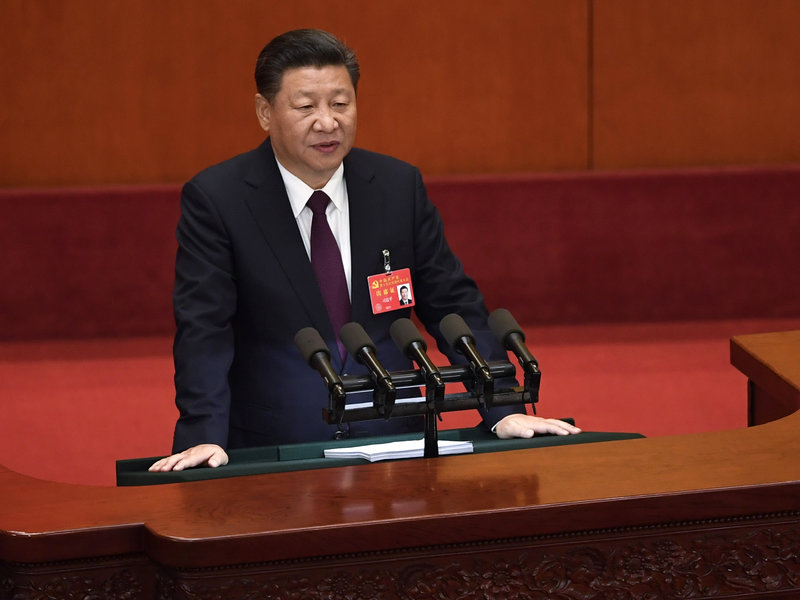China’s President Xi Jinping is under the spotlight this week.
On Wednesday, the 19th National Congress of the Chinese Communist Party kicked off at Beijing’s Great Hall of the People. The Chinese government has tightened security and discipline for the event that takes place twice a decade. Authorities blocked the use of WhatsApp messaging app, censored the use of “19th Party Congress” on Chinese social media platform Weibo and even searched nightclubs in the capital.
How does the National Congress of the Chinese Communist Party work?
This year’s Party Congress is expected to last a week. During the session, almost 2,338 people representing 90 million party members across the country will select the top leadership for the next five years. While President Xi is set to start his second five-year-term, the candidates for the Central Committee, Politburo, and Politburo Standing Committee are much less certain.
What’s special about this year’s Party Congress?
Speculations are mounting that President Xi is planning on the third term, which will allow him to stay in power until 2027. Mr. Xi’s rival Sun Zhengcai, a former member of Politburo, was expelled from the Party for “serious discipline violations” three weeks before the gathering. Mr. Sun, now in his early 50s, was promoted to Politburo in 2012 and had been viewed as the leader who could succeed Mr. Xi.
Another sign to watch out for, which can predict whether Mr. Xi will seek the third term, is the future of Wang Qishan, top graft-buster, and Mr. Xi’s closest ally. According to an unwritten rule, which has existed since 2002, the top officials of the party retire at age 68. Mr. Wang is turning 69 this year, and he is expected to seek a second term.
During a conference last year, Deng Maosheng, a director of the party’s Central Policy Research Office, called the retirement rule “pure folklore.”
“The strict boundaries of ‘seven up, eight down’ don’t exist. This is something from folklore, and cannot be trusted,” he said at the time.
Five of the seven members of Politburo Standing Committee, the body that makes key decisions in the country, are expected to retire this year. Mr. Xi is likely to fill the positions with his allies, such as Chen Min’er, the party chief of the southwestern province of Guizhou, and Cai Qi, the party chief of Beijing.
In addition to the leadership reshuffle, it remains to be seen whether Mr. Xi will add his signature political theory concepts into the Party Constitution. The signature political theory ideas indicate a leader’s legacy. Mr. Xi’s predecessors added “Mao Zedong Thought,” “Deng Xiaoping Theory,” “There Represents” and “Scientific View of Development” concepts.
The president is also tightening his control over the Chinese military. General Fang Fenghui, chief of the army’s Joint Staff Department, and General Zhang Yang, director of the army’s political department, have been out of the public view for more than a month.
Mr. Xi’s anti-corruption campaign and his recognition as the party’s “core” leader, have made him the most powerful head of the state in decades. His predecessor, Hu Jintao, was never endorsed as “core” leader.


